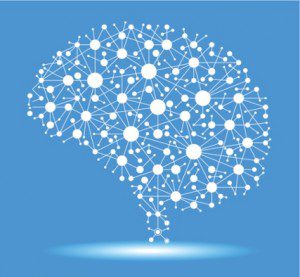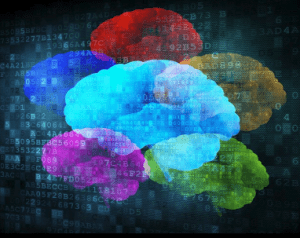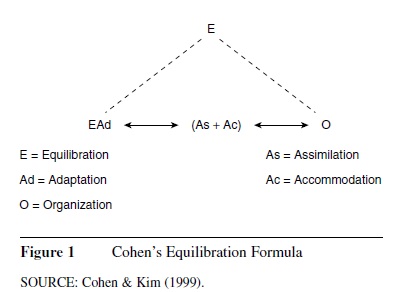Transactional Analysis
Transactional analysis (TA) is a therapeutic approach that emphasizes the ritualistic transactions of interactions and behaviors that occur between individuals....
Read More
Transference and Countertransference
The concepts of transference and countertransference, together with that of transference neurosis, properly belong to the theory and practice of...
Read More
Emotional Development
Emotional development comprises the emergence of the experience, expression, understanding, and regulation of emotions from birth and the growth and...
Read More
Insanity and Competency Assessment
As discussed previously, forensic psychology is the interaction between the clinical practice of psychology and the law. Insanity and competency...
Read More
Brainwashing
Brainwashing Definition Brainwashing is a term that was adopted by the press to describe the indoctrination of U.S. prisoners of...
Read More
What is Emotional Intelligence?
Emotional intelligence is a relatively new concept within the psychological community and was introduced to the general public by Daniel...
Read More
Sexual Offenders in Forensic Psychology
Sex offenders are increasingly the focus of risk assessment and a variety of other legislative and clinical attempts at reducing...
Read More
Dual Attitudes
Dual Attitudes Definition Dual attitudes refer to the idea that an individual can have two different attitudes about something—both an...
Read More
What is Empathy?
Defining The Concept The term empathy was originally coined in 1909 by E. B. Titchener who, drawing on the work...
Read More
Risk Assessment and Violence Prediction
Another topic related to psychopathy and central to clinical forensic psychology is risk assessment. Risk assessment was more commonly referred...
Read More
Effort Justification
Effort Justification Definition Effort justification is the idea that when people make sacrifices to pursue a goal, the effort is...
Read More
Empty Nest
The “empty nest” refers to the physical and psychological change in the family when a child leaves home or goes...
Read More
Psychopathy in Forensic Psychology
Psychopathy is a term that has been around for a long time, but it is only in the last 30...
Read More
Elaboration Likelihood Model
Elaboration Likelihood Model Definition The elaboration likelihood model (ELM) of persuasion is a theory about how attitudes are formed and...
Read More
Endocrine Disruptors
Endocrine disruptors are chemicals that disrupt the normal functioning of hormonal systems or the balance of hormones. There are currently...
Read More
Psychology Applied to the Legal System
There are many opportunities for positive interaction between the fields of psychology and the law; however, this marriage of two...
Read More
Implicit Attitudes
Attitudes provide summary assessments that assist in decisions about how to interact with the world. An attitude is an association...
Read More
English as a Second Language (ESL)
English as a Second Language (ESL) is a program in which nonnative speakers of English who live in a country...
Read More
Trial Consultant Training
The nature and scope of trial consultant training reflect the array of services that are offered to clients, such as...
Read More
MODE Model
Sometimes people’s attitudes predict their behavior and sometimes they don’t. Most people have a positive attitude toward donating money to...
Read More
Postdoctoral Residencies
Forensic psychology was formally recognized as a specialty by the American Psychological Association (APA) in 2001 (through the Committee for...
Read More
Motivated Reasoning
Motivated Reasoning Definition Motivated reasoning is a form of reasoning in which people access, construct, and evaluate arguments in a...
Read More
Equilibration
Equilibration—the process of finding equilibrium or balance—is Piaget’s explanation for how learning grows. Individuals try to balance their present understandings...
Read More
Diplomates in Forensic Psychology
Diplomates in forensic psychology are dually certified by the American Board of Forensic Psychology (ABFP) and its parent organization, the...
Read More
Polarization Processes
Polarization Processes Definition Like the North Pole and the South Pole or the opposite ends of a magnet, poles represent...
Read More
Erectile Dysfunction
Erectile dysfunction (ED), sometimes referred to by its old name, impotence, refers to a condition where a man has difficulty...
Read More
Educational Challenges
Programs that specialize in the training of forensic psychology scientists face specific training challenges. In order to perform useful forensic...
Read More
Erik Erikson
Erik Erikson was born near Frankfurt, Germany, and went on to make several important contributions to the field of life...
Read More
Credentialing in Forensic Psychology
The timing of forensic training raises a fundamental training issue. As previously noted, forensic training can occur predoctorally, during internship,...
Read More
Adaptive Unconscious
Adaptive Unconscious Definition Automatic processes are processes that are unconscious, unintentional, uncontrollable, and efficient (i.e., they do not require cognitive...
Read More
Didactic and Experiential Training
Forensic psychology education requires both didactic and experiential training components. Didactic courses are necessary because they provide the intensive opportunity to...
Read More
Apparent Mental Causation
Apparent Mental Causation Definition The theory of apparent mental causation outlines the conditions under which people experience a sense of...
Read More
Ethical Standards Of Research
The study of behavioral development involves the use of both human research subjects of all ages and animals from chicken...
Read More
Doctoral Programs in Forensic Psychology
Doctoral programs in forensic psychology are the most prominent educational path for training scholars, providing training for many students interested...
Read More
Approach-Avoidance Conflict
Approach-Avoidance Conflict Definition Approach means moving toward something. Avoidance means moving away from it. Obviously you can’t move toward and...
Read More
What is Ethnic Cleansing?
Ethnic cleansing has two central elements. It is a cultural and political project to construct particular groups of people as...
Read More
Master’s Programs in Forensic Psychology
The field of forensic psychology has witnessed tremendous growth in the past 40 years in both academic and professional realms....
Read More
Authenticity
Authenticity Definition Authenticity generally reflects the extent to which an individual’s core or true self is operative on a day-to-day...
Read More
What is Ethnic Identity?
In our increasingly diverse society, issues of race and ethnicity have become of utmost interest to psychologists. Ethnic identity refers...
Read More
Degree and Nondegree Education
Given the different approaches to achieving training goals, what are the specific degree and nondegree training opportunities in forensics that...
Read More
Auto-Motive Model
Auto-Motive Model Definition The auto-motive model as proposed by John Bargh in 1990 describes the complete sequence of goal pursuit—...
Read More
Classification of Violence Risk
The Classification of Violence Risk (COVR) is an interactive software program designed to estimate the risk that an acute psychiatric...
Read More
Euthanasia
The term euthanasia often elicits a variety of responses from individuals. The reactions may be related to one’s understanding of...
Read More
Danger Assessment Instrument
The Danger Assessment Instrument (DA), in its current form, is a 20-item actuarial test designed to assess the risk of...
Read More
















